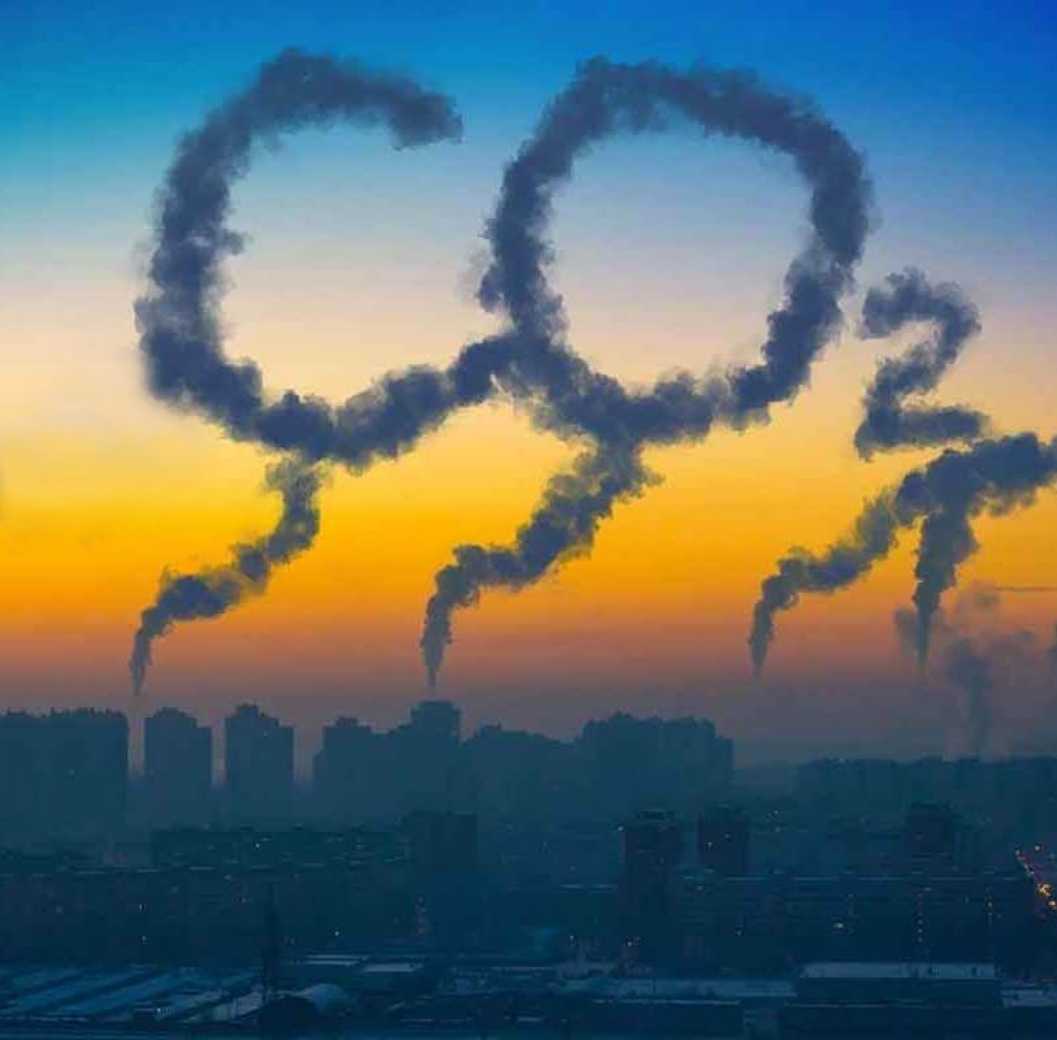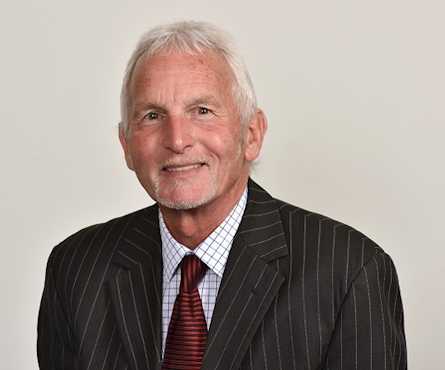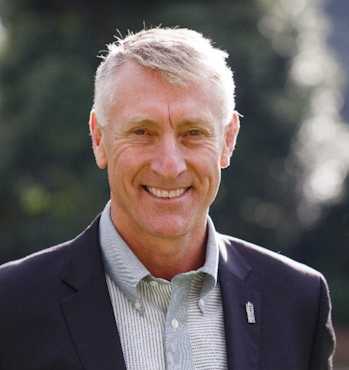
August 2023
Many, if not most New Zealanders, do not fully understand the serious implications of the New Zealand Emissions Trading Scheme (ETS) which is the country's principal tool designed to bring about a reduction of carbon and green house gas emissions.
The transcript below relates to an online discussion on 21 July 2023 on the media site “The Platform” https://theplatform.kiwi/ between the host, Michael Laws and an expert guest commentator, Craig Stobo. The dialogue may help clarify some of the many mysteries about how the New Zealand Emissions Trading Scheme may or may not function.

Michael Laws is a former New Zealand parliamentary politician, local body Mayor, long standing Broadcaster, Writer, Advocate / Litigator, former elected member of a regional Health Board, a current elected councillor on the Otago Regional Council, Host on the online media site “The Platform”...

Craig Stobo is a professional director and business owner. He has previously worked as a diplomat and economist etc and is presently a Taumata member at Otago University Business School. He is also Chair of Precinct Properties NZ Ltd, Chair of Local Government Funding Ltd, Chair of AIG Insurance New Zealand, Chair of N.Z. Windfarms Ltd...
֍֍֍
Stobo: The carbon credit price continues to languish. The foresters who were looking forward to improving the pathway from the Productivity Commission and the Climate Change Commission are unhappy. Those electricity gentailers in the marketplace who were trying to hedge their businesses have now got positions that are more difficult and are now challenged and we have an uncertain time period for resolution or what have a whole range of issues. Bearing in mind that the one of the benefits of the scheme was provide cash to enable distributions to the public and it's fiscally challenging for the government for this situation and which is certainly challenging for taxpayers. So on a number of fronts, this is untenable and I just don't get why there's not more urgency.
Laws: Well, in part there is an election, I mean, I agree with you. Any decision that the government makes now is unlikely to impact pockets prior to the election, so you'd think they'd come up with a solution. What is the solution, Craig?
Stobo: It's a resolution around the intervention of the government in terms of supply of units. They are wanting us to take advice from the Climate Change Commission and to allow the price to be actively traded in the marketplace. The concern expressed to me was around the potential for that carbon price to rise significantly which was a concern around what's called “a just transition to a green economy”. So in my thinking, the more consumers can see the cost of that transition, and what they pay for it, or what they see in food or freight related goods purchases the sooner we will adjust. At the moment, we're not adjusting because the carbon price is languishing. So the path to get to a 30% gross reduction in emissions by 2030 looks more and more difficult, while our pre-eminent response in a policy sense to emissions reduction and the trading scheme is not working and it puts the whole strategy to 2030 in jeopardy.
Laws: Well, it's dead in the water. I think they've realised that now, I think it's the realism of it.
Stobo: I'm not sure about that. Because, you know, some some parts of the political spectrum are pretty keen on a transition. When I was in Ireland, the EU countries will be fined if they don't meet those targets. We have a more malleable agreement through Paris but whichever way you look at it, either we're going to do it or we're not and we're in an untenable position of not knowing where the leadership on this is.
Laws: But one of the reasons that you are getting what you're getting from this government is that they don't want to exacerbate what they can see and fear is the cost of living crisis.
So the problem that they've got, and one presumes that if there was an incoming National / Act government and if there was policy change or political change in three months time is as well at a time when you've got high inflation and significant cost of living pressures, with the Emissions Trading Scheme the consequences will be additional costs to the households of this country.
Stobo: Correct. That all adds up and you have to actually either address it now, or under our Paris Agreement we're up for a larger sum of money to be paid for by taxpayers when we have to buy European emission trading units to compensate for our poor performance on gross emissions. But this is not a costless transition and that's the point. It's not a costless transition and we're not facing the cost of it.
Laws: I'd like to think I'm a relatively literate person and I like to think that I'm informed but I haven't got a clue, me, as to what the costs will be for me and my family from this Emissions Trading Scheme and getting to 2030 recognizing our international commitments. Nobody has explained in any detail at all, what those costs are going to be or where they will arise. Is that part of the problem.
Stobo: The costs are disclosed in the budget documents released this year. The costs are, and this is a range of assumptions around what we might have to pay in taxes in the form of purchasing those European emissions trading units. And the cost from treasury was between, don't quote me on this, between six and twenty six billion New Zealand dollars and in GDP terms 4% to 23% of GDP. Those numbers are bigger, in some cases, than our education and social welfare budgets to be payable in one bite in 2030. So that's the cost and it's a variable amount, over quite a wide range, because there are a number of factors that go into it including the success of our transition to 2030 and the cost of the units themselves in Europe in 2030. So it's there and you divide that by 5 million people. So how do you come up with how do you fund that. We don't talk about the cost of this transition but its there. Treasury are trying to guestimate it but we don't have politicians talking about it and I think business has got to talk about it.
Laws: Craig, as a result of you and what you are saying and what you've been saying for the last few weeks or months is spot on. I mean, these are the discussions we need to be having. It's seven years away, 2030. Six to 26 billion is a massive difference. I mean, for God's sake, this the difference between the deep blue sea and the wide beyond. And what we don't know is frightening. How much we'll be paying individually or having services denied to us, whether they're hospital services, or law and order services or education services as a consequence. We do need to know.
Stobo: Trade-offs is exactly right. So what is more important to our society and what are our obligations - global obligations to Paris. You know, if you have a policy objective and you have a regime to get there, that's all well and good but if you don't have a regime to get there, then the policy objective becomes, well, what do we know. And I'm not sure whether politicians are wobbling on the objective, or they really don't want to have the price effects, the cost impacts, walking their way through various purchases of goods and services and so consumers start to see the cost of transition. I don't know which one politicians are concerned about because they're not telling us.
Laws: The six to 26 billion dollars, that Treasury estimate will be the amount of purchasing the overseas credits to deal with our emissions of carbon in New Zealand, is that a total cost or is it an annual cost.
Stobo: That’s just an estimate of failing to get to 2030, with our gross emission target of a reduction of 30%. There is a different net amount, so we're assuming that some of the treatment of the target is met not by us reducing our gross emissions because we may not get there by purchasing compensating European Trading Units. So if we go faster and get to a 30% gross emission reduction by 2030, that payment won't be made but my thinking is that it gets more and more likely the closer we get to 2030 at our current rate of emission reduction.
Laws: There is a part of me also that goes, because I'm a politician, I wonder if we can negotiate aspects or renegotiate aspects of things that we signed up for, I was thinking particularly of the admission of agricultural issues, for example, because there is a clause that says, if you emit in terms of food production, you can exempt yourself and New Zealand chose not to exempt itself.
Stobo: You're right, under the Paris Agreement there is a clause that says it is not to jeopardize, quote, food security, unquote. So you're right and that is an important card we could play. National is already pushing the introduction of agriculture into the ETS, out by a number of years, so getting time to think about different technologies to improve and meet methane emissions. That is an option but whether the politicians will embrace it or not, I don't know.
Laws: Listen, if he can kick the can further down the road in politics, you do.
Stobo: Well, you'll be closer to responses of politicians than I am. But it does cause issues for us in terms of our global standing in this space
Laws: Does it. Because there must be a lot of other countries which have exempted agricultural emissions from their data counting.
Stobo: We are very different because of 50% of our greenhouse gases (GHG’s) are methane, so we're very different - closer to Ireland, but even Ireland is not as high as we are, so we're very different. The other feature that's different from New Zealand is that with the exception of perhaps China, we are the only country in the world that allows the private sector to offset carbon emissions with forestry. It is an unusual feature of our regime, which is obviously causing us lots of grief in our local communities around afforestation. Whereas in Europe, the concern is deforestation, they are trying to stop afforestation. We are an unusual regime.
Laws: So it's going to require some degree of reform, radical or otherwise anyhow. Is that what you're saying.
Stobo: The scheme has been put in place, it’s been embraced. There are a huge number of New Zealand businesses that are members of the scheme itself or an industrial equivalent stream who are in play now. They have signed up to the system and we just want the government to allow the system to work. No one is disagreeing with the concept of an Emissions Trading Scheme rather than taxing emissions. That's our preferred pathway to 2030, We've embraced it. Let’s get on and finish it.